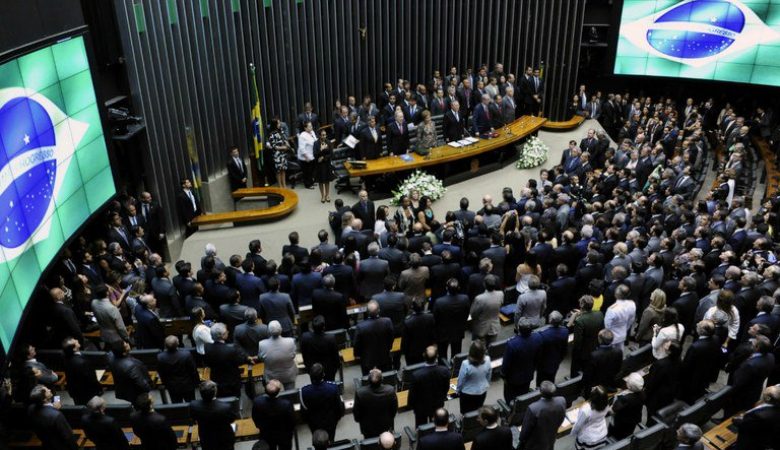RIO DE JANEIRO, BRAZIL – In February 2019, at the start of the current legislature, Deputy Darci de Matos (PSD-SC) used the Chamber plenary to advocate political reform in the country as a response to what he termed a “message” given by the population at the polls in 2018. “We have the important mission of rebuilding our country from the ground up,” he said.

He was not alone. From left to right-wing, statements such as “we need a political reform,” “we are going to make a big change,” and “God willing, we will make a political reform,” have surfaced in at least 22 plenary addresses and over 50 Chamber committee sessions since then.
However, such eloquence has not been translated into progress on bills on the subject. After little progress last year, the subject was virtually forgotten with the pandemic and the work stranded in committees. According to analysts, the situation exposes the political class’s apprehension about reforms within its own structure and demonstrates, in practice, an indifference that contrasts with discussions of structural changes.
The Inter-Union Department of Parliamentary Advisory (DIAP) surveyed all bills submitted by legislators in Congress regarding changes in electoral legislation and the party-political system. There have been 52 proposals in the Chamber to date – seven of them related to calendar changes in the 2020 elections or to hygiene rules to be enforced in connection with the coronavirus pandemic.
Other bills which have not progressed include changes to the Electoral Code, such as the establishment of a mixed electoral and district voting system in municipal legislatures, the criminalization of Slush Funds, and the mandatory fulfillment of electoral pledges. Furthermore, debates have been proposed such as the right to vote over the Internet and the right to vote in transit for certain categories, such as truckers and military personnel.
The issue earned its own sub-committee within the Chamber’s Constitution and Justice Committee (CCJ). Chaired by Luiz Philippe Orleans e Bragança, the political reform sub-committee was formally established in November and held only four meetings before the pandemic.
“This year, nothing happened because of the pandemic. The aim was to hold public hearings and a major debate on the issue. I don’t think it’s a good idea to take it straight to the plenary, because it’s a very technical issue,” he said. “No one is happy with the current model. Left and right-wing agree on this, but they differ in their proposals. That’s why we need a debate. I suppose we will have several decades of political reforms, God willing.”
Deputies Alan Rick (DEM-AC) and Marcel van Hattem (NOVO-RS) are among those who advocated urgent political reform in Chamber speeches, but now understand that the focus needs to be on fighting the pandemic. “I don’t believe that’s possible. The focus is on voting on measures to fight the novel coronavirus and the economic rebound,” Rick said.
Van Hattem suggested that the debate be held in 2021. “A political reform needs to be undertaken with time, with debate, and not during a pandemic. We need to have committees in place with as plural a debate as possible. It’s best to leave it until next year, making changes for the next election.”
In the Senate, the DIAP tracked 60 bills, most of them stalled in the CCJ. Among them are proposals ranging from halving to abolishing the special campaign financing fund, the constitution of a Statute of Party Democracy, and the institution of free interstate collective transport-passes on voting days.
“Legislators are fearful,” said Antônio Augusto de Queiroz, a political analyst at the DIAP. “The current Congress is concerned with preserving the electoral timetable and party and electoral funds. So perhaps there hasn’t been much legislative initiative in this field. They are concerned because to change these proposals would mean eliminating or reducing these resources.”
While there is no broad political reform, Brazil collects rule changes at each election. This year’s ballot, for instance, will have no coalitions in legislative elections. The measure was passed in 2017 and also applies to federal and state deputies, but became effective only this year, when city councilors will be elected. A change passed in 2019 by Congress allows parties to use the Party Fund to pay for the services of attorneys and accountants, even in judicial and administrative proceedings of party interest involving their candidates.
Clean Record
Before these changes, other “new features – topics of interest to political reform projects – were gradually included in Brazil’s political party system. In the 1990s, corporate donations, the reduction of the presidential term from five to four years, and re-election. More recently, the Ficha Limpa (Clean Record) Act, the end of corporate donations, and the barrier clause requiring a minimum number of votes to earn representation in Congress.
“There is a challenge for those in power, particularly in Congress, to convert this area into something to which more people may have access. A political reform only occurs with popular pressure, as was the case with the Clean Record Law,” said political scientist Kleber Carrilho of the University of São Paulo (USP). “The current model provides great benefits to those who already hold office. A real political reform is a risk for those in power.”
According to Chamber president Rodrigo Maia, after the focus on measures to fight the coronavirus, reforms will return to the Congress’ agenda. He has already mentioned tax and administrative reforms. But not in politics. “We need to discuss a renegotiation of the spending structure.”
“The government’s administrative reform, which was intended for the new servants, for one, will need to be considered differently. The reform of goods and services needs to be considered. But the administrative reform in the second semester will need to take place at a different level,” he said in May at a Santander bank event.
Source: O Estado de S. Paulo

